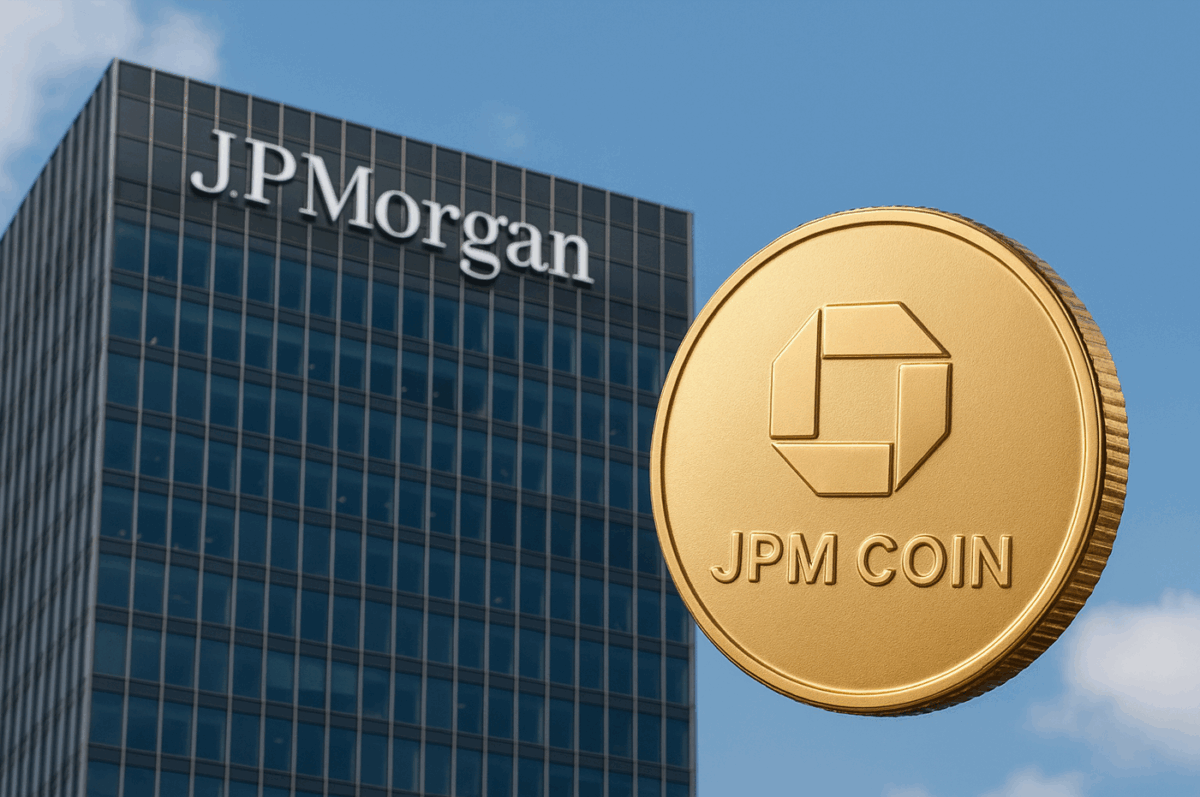In a move aimed at connecting traditional banking with blockchain technology, JPMorgan Chase & Co. has launched a blockchain-based deposit token dubbed JPM Coin (JPMD) for institutional clients.
The token runs on Coinbase’s Base blockchain, allowing instant and more cost-effective transfers for large businesses around the clock.
JPM coin offers instant 24/7 payments
The JPM Coin represents digital claims on US dollar deposits held at JPMorgan, differing from stablecoins, which are backed by external reserves.
Notably, payments using the token will be settled within seconds, even outside regular banking hours.
Naveen Mallela, global co-head of JPMorgan’s blockchain arm Kinexys, told Bloomberg that the rollout allows “real-time settlement” without traditional delays.
JPMorgan tested the coin with Mastercard, Coinbase, and B2C2. The trials helped measure its performance in real-world transactions and fix early issues.
The bank also used the pilot to plan future integrations with other payment networks. Mallela said the tests showed that blockchain can blend “seamlessly” with existing financial systems.
Each JPMD token is backed one-to-one by US dollars. This ensures the same safety as normal deposits.
The bank also plans to launch Euro-based versions, known as JPME, once regulators approve. Mallela added that the goal is to extend access to clients of clients in the future.
Deposit tokens gain ground across banking
Deposit tokens like JPM Coin differ from stablecoins in key ways. They are yield-bearing, meaning holders can earn a small interest.
Each token represents actual deposits, not reserve-backed assets. This makes them safer for institutional use and large-value settlements.
Coinbase will accept JPM Coin as collateral, increasing its utility for trading and lending. Mallela noted that deposit tokens offer a “compelling alternative” to stablecoins for major firms.
The tokens enable fast transfers while keeping deposits under strict regulatory oversight.
Other global banks are following the same path. BNY Mellon and HSBC are testing similar systems to modernize payment infrastructure.
Citigroup, Deutsche Bank, Banco Santander, and PayPal are also exploring blockchain for institutional payments.
In Asia, the Bank of Korea introduced a central-bank deposit token earlier this year, calling it a “type of stablecoin.”
Governments are also providing more clarity. In the United States, the Genius Act sets legal standards for digital tokens.
The law ensures these products remain safe, transparent, and fully compliant. Regulators believe deposit tokens can modernize financial systems without the volatility seen in crypto assets.
JPMorgan’s Kinexys network already processes over $3 billion daily. It supports dollar, euro, and pound transactions for global clients.
With JPM Coin, the bank strengthens its position in blockchain-based finance.

